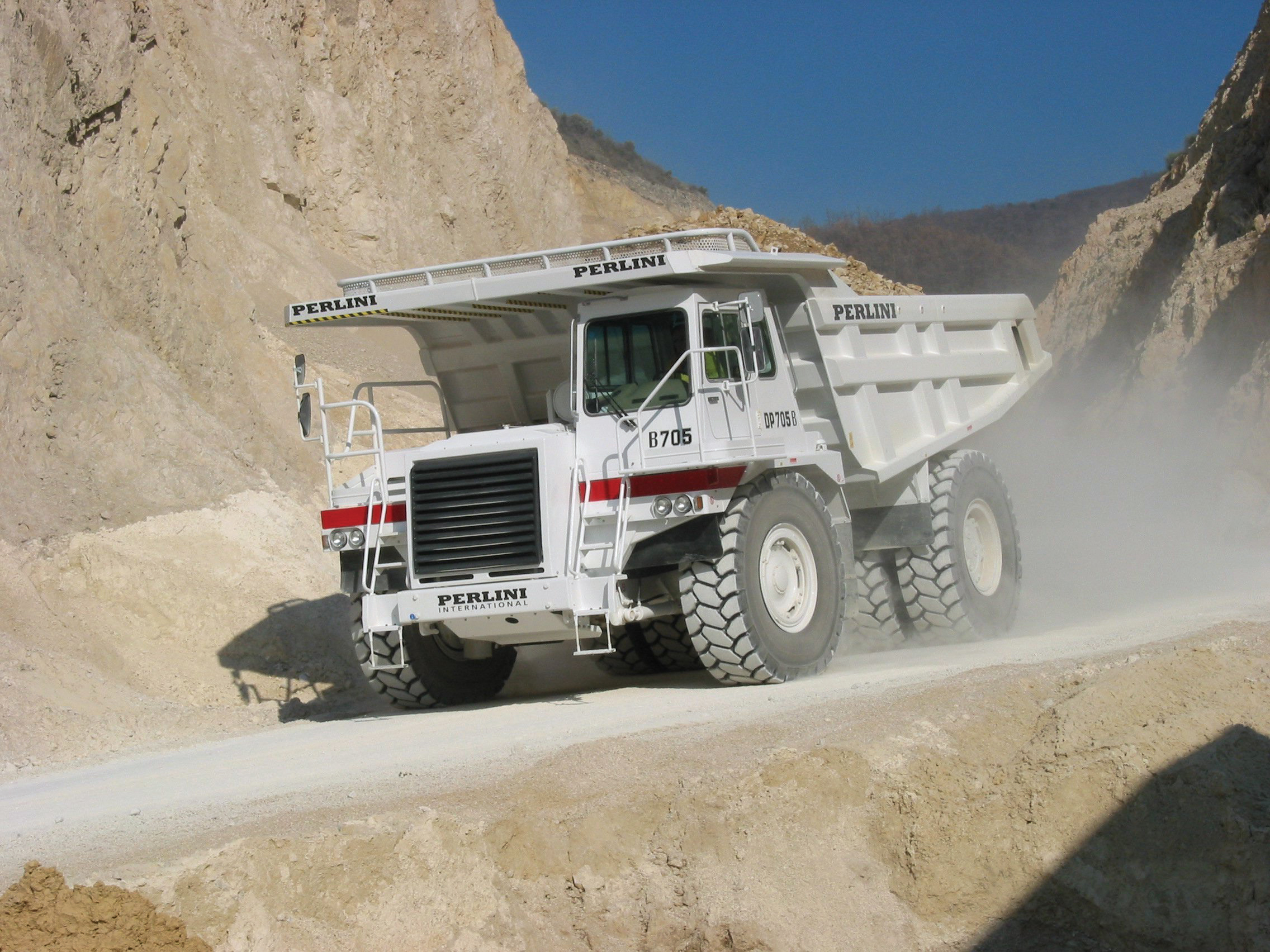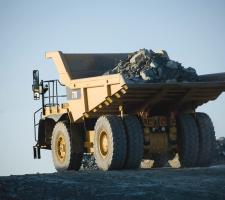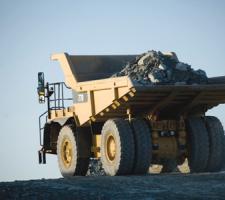
Quarry operators with a long-term outlook still consider rigid dump trucks to be the most cost effective solution for hauling
Rigid dump trucks are frequently called the ultimate hauling machine but there are lots of different applications and whether it lives up to this accolade depends on how the customer uses the machine," said
"The choice will depend on the materials, the loader and the haul road, as well as a number of other factors," said Ellington. "The lines are blurred. There may be a real reason to choose an ADT but some are too focused on just the initial cost." Ellington points out that an RDT may be build two or three times before it reaches the end of its services life and, although Cat has just rebuilt an ADT in Germany (ABE May/June 2010), ADT rebuilds are almost unheard of due to the shorter service lives of such machines.
"The real differentiator is the underfoot conditions - with good haul road maintenance, the higher speeds possible with RDTs can have a real impact on cycle times and the savings can pay for the additional machines needed to maintain good conditions on site," explained Ellington.
New or rebuild?
"Most quarry customers have a long term focused outlook and despite the current economic situation, they are still looking at the immediate requirements of the quarry," explained Ellington. "They are considering keeping older machines and rebuilding them more than ever before but some also have their eye on the fact that demand for aggregates will probably return next year and are investing in new machines in a bid to be ready to meet the demand.
"It is clear that more people are talking about rebuilds but they are also factoring in the implications on availability - a new machine can offer around 95% availability but an old machine - even after a rebuild - may only offer 90% availability." Cat emphasised the potential offered by rebuilding at
New alliance
The importance to manufacturers' strategy of being able to offer quarry customers a full line of machines has been underlined by the recent alliance between
The
"We see this as a very positive step forward, endorsing our desire to be a total solutions provider for customers in our market," said
"Equally, this arrangement offers a realistic opportunity especially for customers in the extractive industry today, to consider an alternative, proven quality marque of truck backed by the strength of the Volvo brand, our core values and fully accredited and integrated management system." There are currently four models of rigid hauler manufactured by Perlini which will be available under the agreement. The models are the DP405, DP605, DP705 & DP905 ranging between 40 to 100tonnes payload capacity. Under the deal, these models do not become part of the Volvo range and retain their white livery, branding etc. A full after market support for the trucks will be provided by Volvo Construction Equipment's comprehensive network of customer support centres, mobile and home based mobile engineers and the parts distribution network.
Nick Rose, responsible for business development in Volvo CE Europe said, "The Perlini products have been proven to plug the gap in the Volvo range to allow our distribution network to offer complete solutions to our quarrying and aggregate customers."
Maurizio Perlini, responsible for Perlini's commercial affairs added, "This is a win-win situation for Perlini, Volvo and our customers. From our point of view we now have a much wider access to the quarry market, and customers can now take advantage of an established and comprehensive after sales support network."
Demand development
With the options for RDT supplier widening, quarry customers are looking for their machines to deliver more - and not just in terms of tonnes moved per hour.
"Customers are demanding more information from their machines in terms of payload and prognostics - including fluid levels, tyre pressures and fuel consumption," said Ellington. "They want more control of their assets and to head off potential problems before they halt production and give them more predictable costs." There is still room for improvement with existing fleets, according to Ellington. "Often we point out areas where efficiencies could be made to a customer and they already understand the concept but with so many other things to manage on site, simple ways to improve operations sometimes get forgotten. This includes things like proper spotting of the truck, using the optimum number of passes for loading and trying to keep the loading time down to a minimum of 150 seconds," he said. "Other areas where fuel consumption can be improved is with smoother braking and driving and checking for machine body and tyre wear on a regular basis.
"Whatever the problems or issues a customer has with hauling, there is a solution but they need to talk to us so we can help them resolve any issues - no two sites are the same."
















